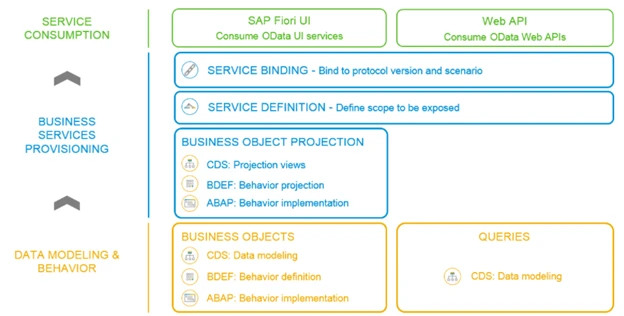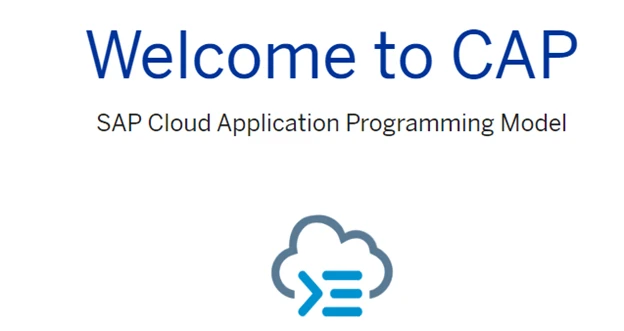Eursap's Ask-the-SAP-Expert: Mateusz Skrzyniarz
Eursap's Ask-the-SAP-Expert: Mateusz Skrzyniarz.
Eursap’s Ask-the-SAP-Expert article is a feature designed to give you up-to-date information on the latest SAP news, featuring key thought leaders in the SAP space, as well as regular interviews with the best SAP consultants in the business.
This month, we feature Mateusz Skrzyniarz, an experienced SAP S/4HANA Development Transformation Expert in Poland. He helps companies prepare their development teams and processes for S/4HANA with a strong focus on strategy, execution, and governance. Mateusz also has vast experience in implementing extensions to eCommerce platforms as well as building non-SAP Cloud solutions.

Welcome Mateusz and thank you for taking the time out of your busy schedule to talk to us. As is normal for these interviews, I’d like to begin with a get-to-know-you session. Can you tell our readers a little bit about yourself?
Sure, but first of all, thanks a lot for having me. It’s really a pleasure. As for the short intro, my name is Mateusz Skrzyniarz. Don’t worry if you can’t pronounce my last name - LinkedIn has you covered! There’s a little loudspeaker icon beside my name on my LinkedIn profile that’ll tell you!
I was born in Poland but at a young age I moved to Ireland with my parents where I went to school and university and started my professional career. I have lived in four countries in total: Ireland, Taiwan, Germany and Poland and I speak four languages: Polish, English, German and Spanish.
I am a really outgoing person who enjoys being surrounded by people and loves helping others. This is what got me into the world of consulting, I guess.
Since last year, I have also been actively supporting the SAP community on LinkedIn by regularly sharing my thoughts, experience, and knowledge on the topics I’m familiar with.
And what was your first experience with SAP?
It was a complete accident actually. The University I was studying at (Dublin City University in Dublin, Ireland) had a good relationship with many employers across the country and SAP was one of them. I saw their job post and decided to apply for an internship, not even knowing what SAP is. I actually thought they made websites, mobile apps and web apps… I remember my interview where I asked why one of the biggest Irish banks has no mention of SAP anywhere on their website, being fully convinced that SAP built their website. Ahh well was I wrong…
It’s funny how everybody in Walldorf and the surrounding areas know at least a few people working for SAP. Most of the people in Ireland think that SAP is a landscaping company (there is a pretty big one called this - fact!) or that somebody mispronounced the car manufacturer SAAB.
.webp)
vs
.webp)
vs
.webp)
And what makes you tick Mateusz? Which is the area you work in that gets you out of bed in the morning, full of energy?
This might sound strange, but I have a weird attraction to escalations and really challenging projects. Working under pressure gives me energy and helps me push boundaries and come up with the best solutions to common problems. I am not a fan of mundane, long-running tasks.
You’ve been active in contracting and permanent roles in the SAP world. What is your preference of these two ways of working?
My personal preference right now is contracting. The reason for that is the flexibility you are offered. You finish one project and decide for yourself if you want to join another one straight away or take a month or two off. Though naturally, it can be stressful at times if nothing good is available at hand. I also enjoy ad-hoc advisory - short-term problem-focused assignments.
However, if I was to advise a fresh SAP consultant - I’d say they should stick to permanent roles for a while and try to get an in-house role at SAP. It really changes your perspective on this entire industry.
Let’s turn our attention to SAP S/4HANA. Functionality has marched on significantly from the ECC6 days. Which area of S/4HANA would you say was the most exciting?
I’m sorry but I’m biased here because I only really work on the technical side of S/4HANA. Talking about the functional aspects would be rather hypocritical because I don’t touch them enough.
As for the development side, though, I must say that S/4HANA has really been revolutionary in the world of SAP developments. Opening the world of extensions to business users with no technical knowledge, integrating with the outside world with the help of out-of-the-box APIs and the introduction of RAP (RESTful Application Programming) model have all really been a game changer.
See this link for more information on ABAP RAP:
https://help.sap.com/docs/ABAP_PLATFORM_NEW/fc4c71aa50014fd1b43721701471913d/289477a81eec4d4e84c0302fb6835035.html

There are still many large organisations who have yet to take the plunge and upgrade their legacy huge ECC6 systems to SAP S/4HANA. What do you see as the challenges which are holding them back?
Many SAP clients absolutely fear system upgrades. They tend to delay them for as long as possible and even avoid, whenever feasible. This is mainly caused by the custom code baggage they have been building over the years.
The case of S/4HANA migration is somewhat similar. Businesses don’t actually know how much technical debt they’ve accumulated and are unable to estimate how much effort it is to move that to S/4HANA. On top of that come all the custom-built “critical” business processes which they’d need to rebuild in S/4HANA. Every company thinks that their business is so special that they need their own standalone processes, but the reality is that many of these could be brought back to standard, which would lead to a significant reduction in maintenance costs.
When we talk about building up a business case for migration to SAP S/4HANA, what factors should organisations be looking at?
I tell my clients that they are not actually saving money by not upgrading (or moving to S/4HANA). They are most likely spending a good chunk of it - or even all of it - on something else. Having a highly customised, outdated system, especially one that hasn’t been upgraded in 7 years (yes, I have seen that a few times!) means you are responsible for implementing SAP notes, troubleshooting already-resolved production issues, building features that could already be available as standard and having to maintain all the custom solutions yourself.
On top of that comes the fact that you are missing out on all the innovation that’s happening around you - development improvements, new features and functionalities, new integration capabilities, etc.
There are so many innovations which are now available as part of the Industry 4.0 landscape, including AI, machine learning and blockchain. In your experience, are customers making the best use of SAP S/4HANA after they migrate?
My experience so far is that many customers still struggle with grasping the concept of BTP and SaaS-like offerings that they can freely consume. ML and Blockchain are still lightyears away for many, at least the ones I’ve worked with.
As for AI, I’m a big fan of ChatGPT for developers (yeah, developers again - I’m sorry!) and what that can do to simplify daily tasks. I’m even preparing a series of videos with quick tips on how SAP developers can utilise GPT even today.
You’ve done a few digital transformations in your time. Do you have any unusual experiences you can share with our readers?
One of my favourites is a project I was part of, where a dedicated person was onboarded to see how so much money was being consumed by the project every month. After thorough analysis of the outgoings, they realised that there was a full team of 30 people working in a remote location and nobody knew what they were doing. After a closer look they came to the conclusion that these guys were actually all doing productive work, but it goes to show how easy it is to overlook some aspects in large-scale projects.
With the global economic slow-down over the last few years, how do you see the SAP job market these days, especially in Poland?
The Polish market is currently extremely saturated with non-SAP IT experts looking for jobs. I guess it’s due to the new trend that’s been developing over the last few years where everybody was switching to programming because of the higher pay.
As for SAP - I am not sure, to be honest. I am still yet to do a project for a Polish company, or with a Polish consultancy. I tend to focus more on the western part of the world.
For more information on available SAP careers in Poland, check out our website: https://eursap.eu/jobs
SAP looks to be keeping you pretty busy, Mateusz. Do you ever get any time for hobbies and interests?
Oh yeah, hobbies are a must, doing transformations 24/7 would probably make me go mad! Everybody needs something that helps them switch off :-)
I’m a car enthusiast, I like to travel (who doesn’t?) and I love snowboarding and windsurfing. I try to spend my spare time either in the mountains or somewhere on the water. Since 2019, I have been living back in Poland and I absolutely love it for the big variety of landscapes that it offers! I would definitely recommend visiting, if you ever get a chance!
The question we always ask our experts: what advice would you have for new SAP consultants just starting out or established SAP consultants facing new challenges?
Again, focusing on those desiring to become technical/development experts, I would definitely first look at S/4HANA and BTP and what they have to offer. SAP is no longer just old clunky ABAP. Look at the key-user extensibility tools, look at RAP (Restful Application Programming model), and CAP (Cloud Application Programming model).
SAP these days is a lot easier (and cheaper) to learn than it was 10 years ago. There are endless tutorials, free courses and even access to SAP systems. Look at OpenSAP, SAP Developer portal, Udemy, YouTube videos, etc. Also, don’t forget about LinkedIn and some popular creators that offer useful tips, often on a daily basis (myself included).
For more information about SAP Cloud Application Model, please refer to the below link.
https://cap.cloud.sap/docs/
